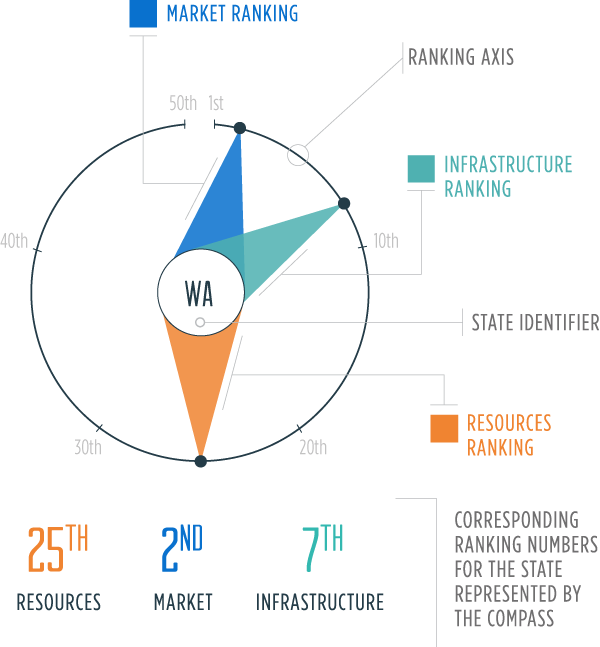Sweeping Plains > Kansas
Resources: A measure of total energy production and consumption per capita
Market: The cost of consumption, measured in electricity prices and gasoline taxes
Infrastructure: Capacity to generate and refine energy sources; miles of pipelines
Kansas produces substantial quantities of natural gas, although marketed production has declined overall since 1995. Natural gas reserves contained within coal seams in the eastern part of the state are estimated to be more than 180 billion cubic feet.
Nine natural gas interstate pipelines cross Kansas. Many of them converge on the Mid-Continent Center in Wichita, a key natural gas supply hub that merges production from several states in the region before piping it east toward major consumption markets.
In 2013, Kansas ranked 10th in crude oil production among the 50 states (excluding the federal offshore areas), and its output represented almost 2% of total U.S. production.
Production trillion btu
Oil
Gas
Coal
Wind
Solar
Hydro
Biofuel
Nuclear
net energy Production trillion btu
Consumption trillion btu
Oil
Gas
Coal
Renewable
Nuclear
Gasoline Tax total state + federal, 2014
KS
USA
Key Policies
Requires investor-owned and cooperative electric utilities to obtain 20% of their peak demand capacity by 2020.
Requires the use of reformulated gasoline in the Kansas City metropolitan area.
Requires a permit and surety bond for oil and gas well drilling. There is no permit fee. Bond fees are 75 cents times the aggregate depth for all wells drilled or operated.
Electricity net production, trillion btu
KS
USA

